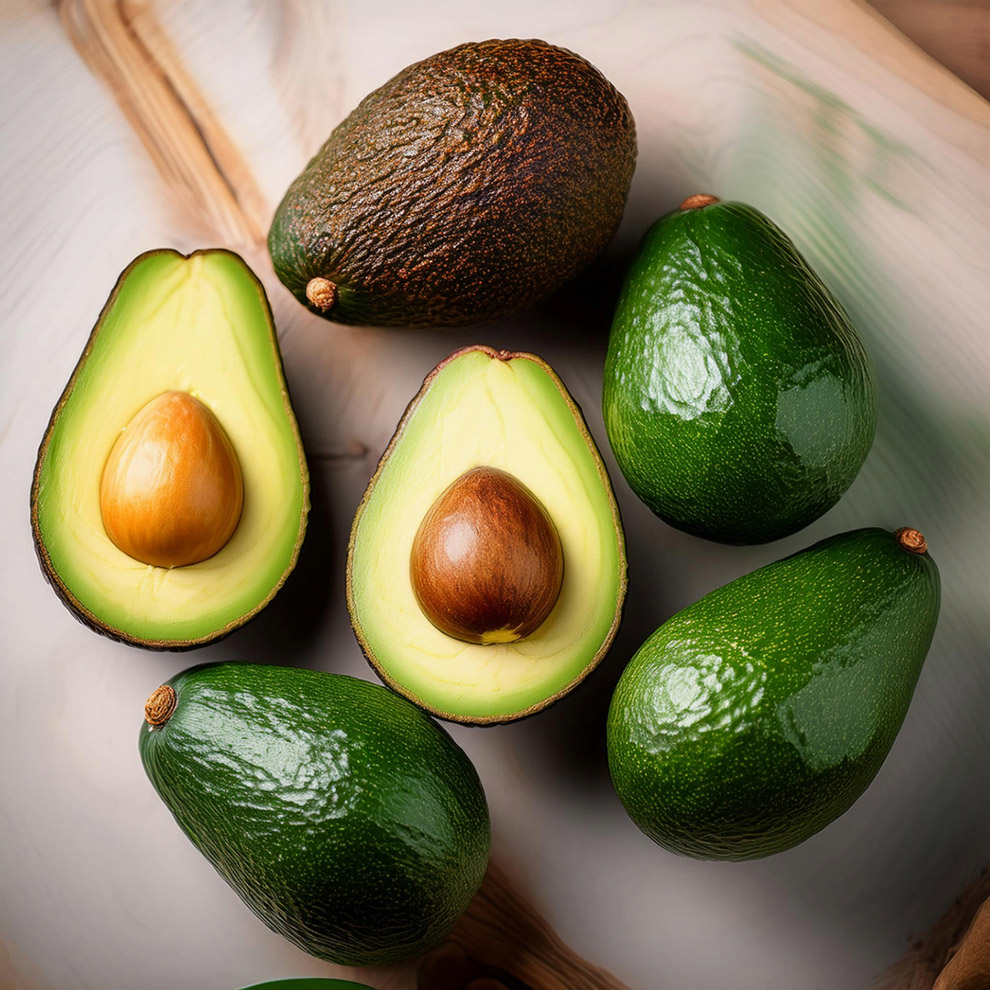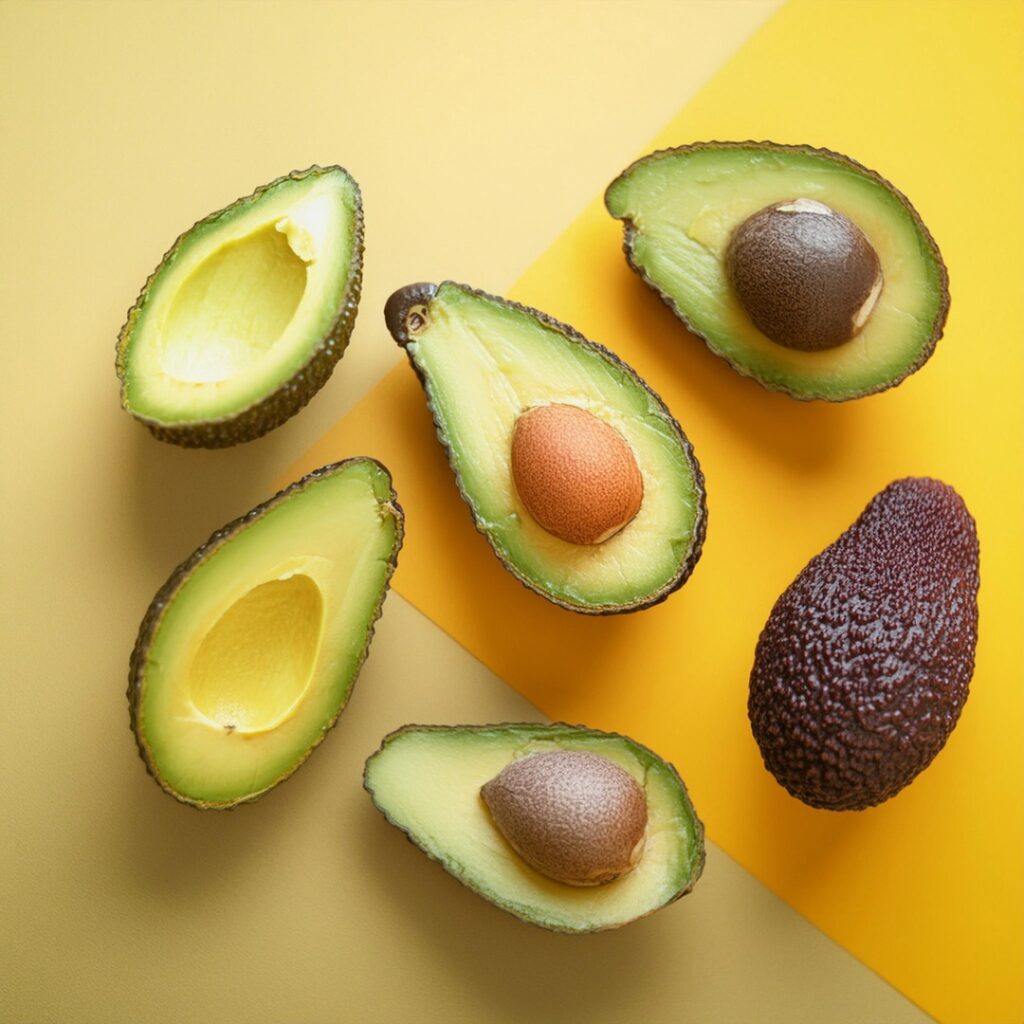Avocados have become a staple in many diets, celebrated for their unique taste and impressive nutritional profile. One question that comes up frequently is: How many calories are in an avocado? Understanding the caloric content and the overall nutritional benefits of avocados can help you make informed decisions about incorporating this nutrient-dense fruit into your daily meals. This post will explore the science behind the calories in avocados, their nutritional value, and how they contribute to health and weight management.
What Makes Avocados Unique in Nutrition?
The Composition of an Avocado
Avocados are composed of a mix of macronutrients: fats, carbohydrates, and proteins. However, what truly sets them apart is their high fat content, primarily composed of heart-healthy monounsaturated fats. These fats contribute to a large portion of the calorie content, but they offer numerous health benefits. Avocados are also packed with essential vitamins and minerals, such as vitamins K, E, C, and B-6, along with folate, potassium, and magnesium.
How Does the Caloric Content Break Down?
The average-sized avocado (about 150–200 grams) contains roughly 234–250 calories. This number can vary slightly depending on the size and type of avocado. Of these calories, approximately 77% come from fat, making avocados one of the fattiest plant foods available. However, these fats are primarily monounsaturated fats, which are linked to a variety of health benefits, particularly heart health.
| Macronutrient | Amount per 150g Avocado | Percentage of Total Calories |
|---|---|---|
| Fat | 21g | ~77% |
| Carbohydrates | 12g | ~17% |
| Protein | 3g | ~6% |
Understanding Avocado Calories Through Science
The Role of Monounsaturated Fats
Unlike saturated fats found in processed foods, monounsaturated fats are considered “good fats.” These fats help reduce bad cholesterol levels in your blood, lowering your risk of heart disease and stroke. Avocados’ rich fat content also promotes satiety, helping you feel fuller longer, which can be beneficial for those trying to maintain or lose weight.
The science behind monounsaturated fats shows they are not just energy-dense but also nutrient-dense. They help the body absorb fat-soluble vitamins like A, D, E, and K, increasing the overall nutritional impact of the meals you prepare with avocados.
Avocados and Weight Management
Despite their high caloric content, studies suggest that avocados may support weight loss and management efforts. The combination of fiber, healthy fats, and relatively low carbohydrate content can contribute to a feeling of fullness. A study published in the Journal of Nutrition found that participants who ate an avocado with their meal felt more satisfied and ate fewer calories in the following meal compared to those who didn’t consume avocado.
This makes avocados a valuable part of a balanced diet, particularly in weight management plans. The key is moderation; avocados can fit into a calorie-controlled diet when consumed mindfully.
Avocado Sizes and Their Impact on Caloric Content
Small Avocados
A smaller avocado, weighing approximately 100 grams, contains roughly 160 calories. This size is typical for certain varieties like the Mexican avocado, which is smaller than the common Hass variety.
Large Avocados
Larger avocados, weighing 200 grams or more, can contain between 300 and 350 calories. These larger fruits are often found in varieties like the Reed avocado, which tends to have a richer, creamier texture compared to smaller varieties.
Hass Avocados
The Hass avocado is the most widely consumed type and generally weighs around 150–200 grams. A medium-sized Hass avocado contains about 234 calories. This variety has a nutty flavor and creamy texture, making it ideal for a wide range of culinary uses.
How Calories in Avocados Fit into a Healthy Diet
Balancing Avocado Calories with Other Foods
While avocados are calorie-dense, they are also incredibly nutrient-rich, meaning you get a lot of health benefits from the calories they provide. Pairing avocados with other healthy foods can help create a well-rounded meal that satisfies without overeating.
For example:
- Pairing avocado slices with whole grain toast adds fiber and complex carbohydrates to the healthy fats in the avocado.
- Adding avocado to a salad with lean protein like chicken or beans provides a balanced meal with healthy fats, fiber, and protein.
The Role of Fiber in Avocados
Each avocado contains about 10 grams of dietary fiber, which plays a critical role in digestive health. Fiber helps regulate blood sugar levels, promotes a healthy gut, and can assist in weight management by keeping you full longer. The fiber content in avocados is another reason why, despite their calorie density, they are considered beneficial for those looking to lose or maintain weight.
Nutritional Synergy: Why Fat Is Important
One of the most important aspects of including healthy fats like those found in avocados is that they aid in nutrient absorption. Specifically, fat is necessary to absorb fat-soluble vitamins such as vitamin A, D, E, and K. For instance, adding avocado to a salad can enhance the absorption of carotenoids from other vegetables, significantly boosting the nutritional value of the meal.
The Science of Calories and Weight Loss
Caloric Density vs. Nutrient Density
When evaluating whether avocados fit into a weight-loss plan, it’s important to distinguish between caloric density and nutrient density. Foods like processed snacks are calorically dense but offer little in terms of nutrients. In contrast, avocados provide a high number of calories, but those calories come with a wealth of nutrients that support overall health.
Avocados and Satiety
One of the challenges in weight loss is maintaining satiety—feeling full and satisfied after meals to avoid overeating. The high fat and fiber content in avocados can help with this, as they promote longer-lasting feelings of fullness compared to meals that are low in fat and fiber. This means that even though avocados are calorie-dense, they can help reduce overall calorie intake by curbing hunger.
Are There “Too Many” Calories in Avocados?
Moderation is Key
While avocados are healthy, portion control is essential, especially for those monitoring their caloric intake. A quarter to half an avocado per meal is often enough to enjoy the health benefits without consuming too many calories.
Avocados and Low-Carb Diets
For individuals following low-carb or ketogenic diets, avocados are a staple food because they are low in carbs but high in fat. Since these diets rely on fat as the primary energy source, the high-calorie content of avocados fits perfectly within this dietary framework.

The Final Verdict: How Many Calories Should You Consume from Avocados?
Avocados are a nutrient powerhouse packed with healthy fats, fiber, vitamins, and minerals. While they are relatively high in calories compared to other fruits, the health benefits far outweigh concerns about caloric intake, especially when eaten in moderation. Whether you’re using avocados as part of a weight-loss plan or simply seeking to improve your overall health, this versatile fruit can be a nutritious addition to almost any meal.
References
- Dreher, M. L., & Davenport, A. J. (2013). Hass avocado composition and potential health effects. Critical Reviews in Food Science and Nutrition.
- Fulgoni, V. L., et al. (2013). Avocado consumption is associated with better diet quality and nutrient intake. Nutrition Journal.
- USDA National Nutrient Database for Standard Reference. (2020).
- Soler, A., et al. (2010). Avocados and their contribution to a balanced diet. International Journal of Food Sciences.
- Sabaté, J., & Wien, M. (2010). Nuts, blood lipids, and cardiovascular disease. Asia Pacific Journal of Clinical Nutrition.


